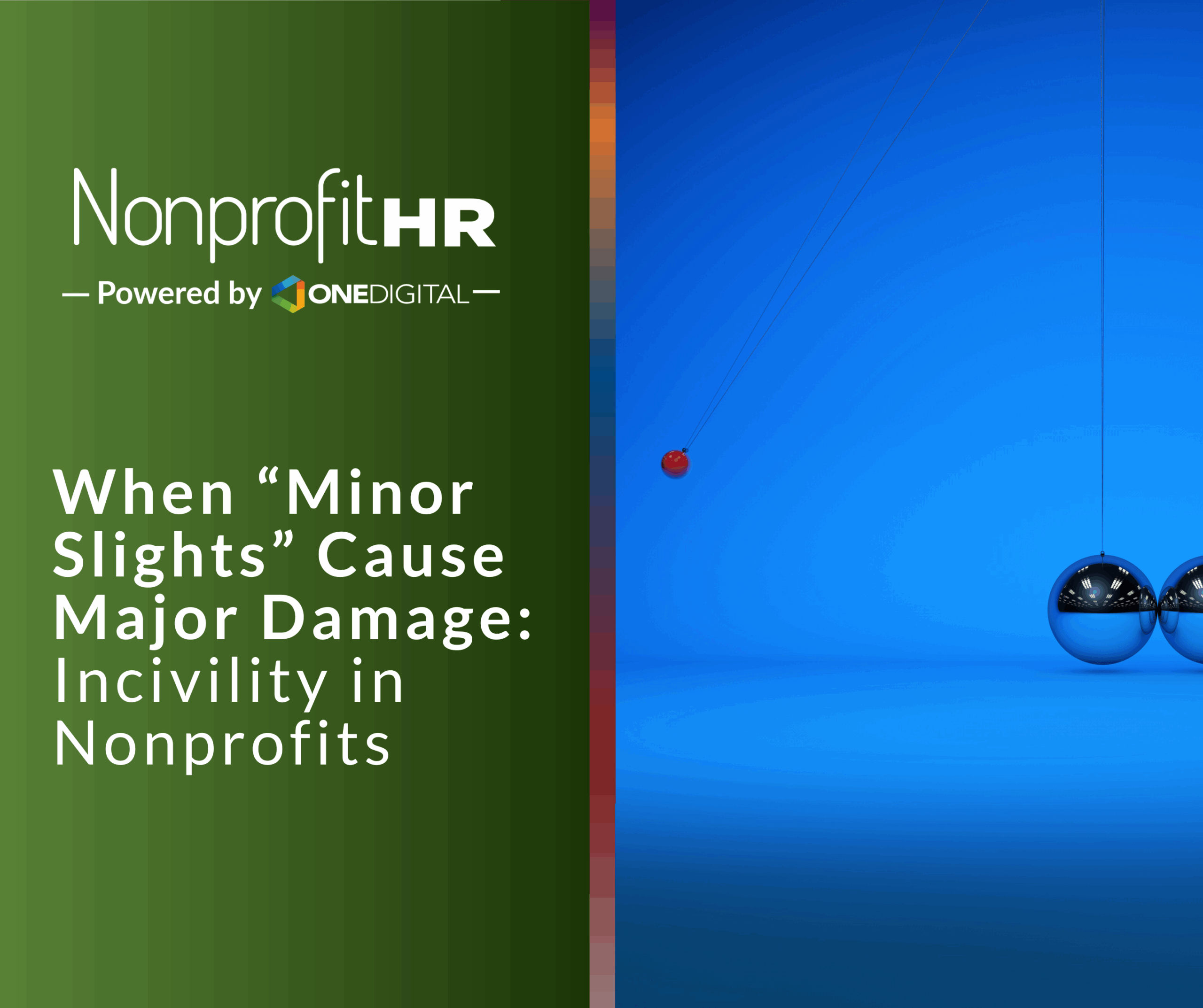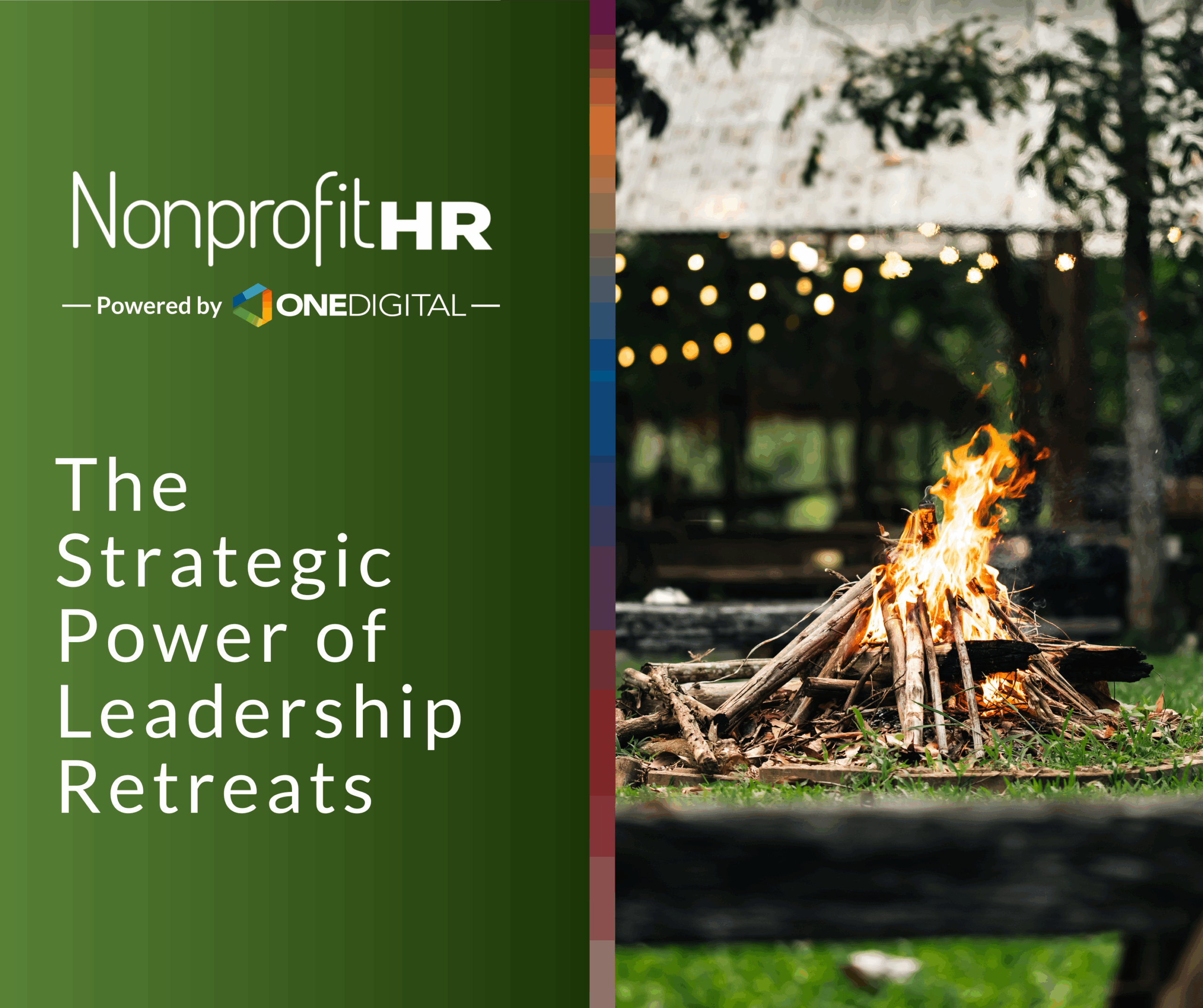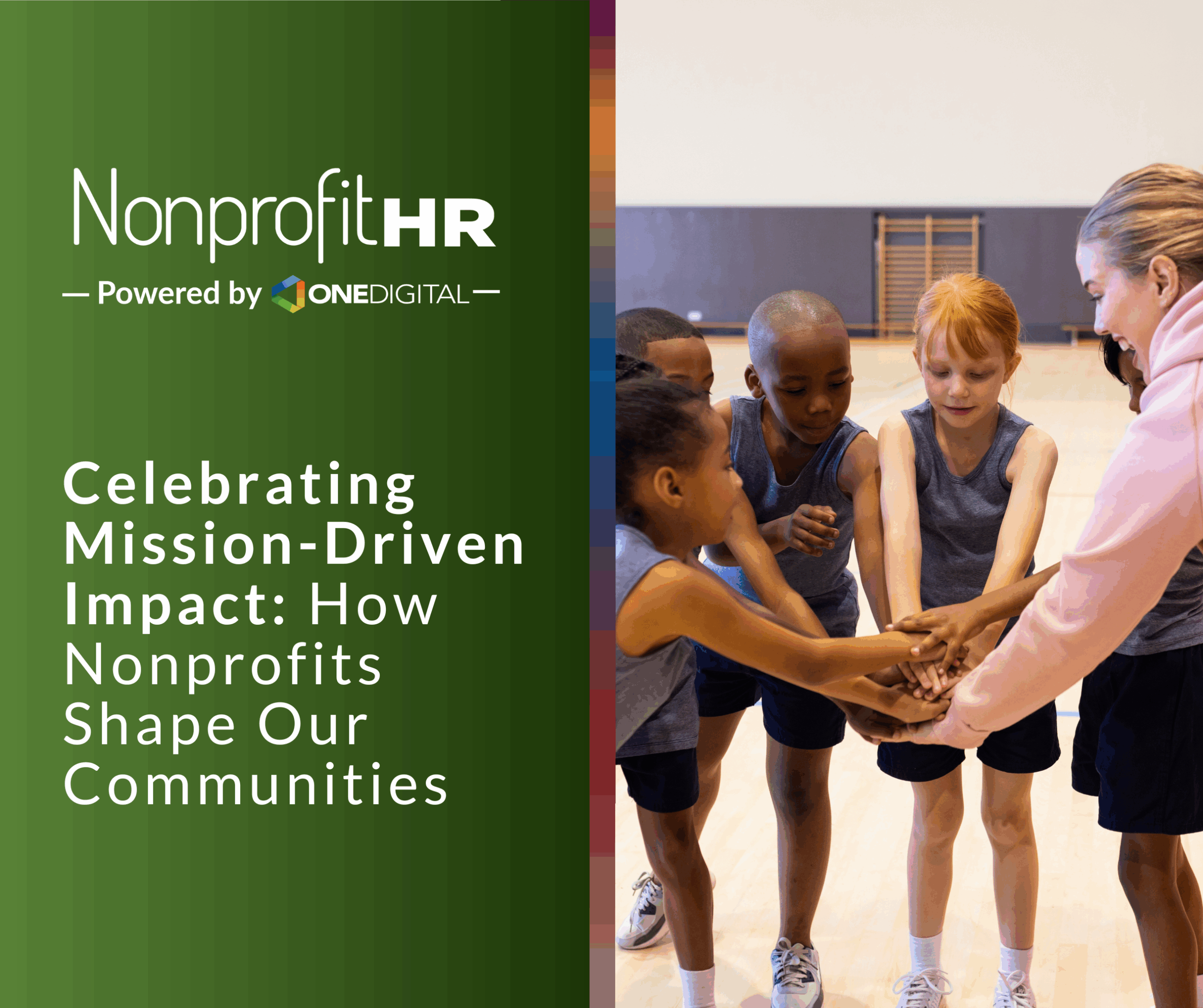WTOP: 5 ways nonprofits can…
When you think about what helps a mission thrive, it’s easy to point to strategic plans, bold goals and community partnerships. Those things are all true, however, behind every nonprofit’s program and every breakthrough is something even more foundational: the people doing the work.
At the heart of every successful nonprofit and social impact organization is a workforce that’s aligned, empowered and equipped, and that’s exactly where competency frameworks come in.
What Are Competencies and Why Do They Matter?
Competencies are the knowledge, skills and behaviors that define what success looks like in a role, and more importantly, across an organization. When clearly articulated, they provide a shared language for how work gets done and how values come to life in practice.
They go far beyond job descriptions. Competencies:
- Align people with purpose by connecting day-to-day work to the broader mission.
- Clarify expectations for employees at every level.
- Create transparency in how people are hired, developed and promoted.
- Reinforce your organization’s values, culture and priorities.
- Foster equity by establishing consistent standards of excellence.
- Build capacity at every level that are strategic, intentional and people centered.
- Support adaptability by identifying the skills needed now and those needed for what’s ahead.
For mission-driven organizations, where resources are often stretched and stakes are high, having this clarity is not a luxury, it’s a necessity.
Why Competencies Are Especially Powerful in the Social Impact Sector
Nonprofit organizations can face a unique set of workforce challenges: limited professional development budgets, evolving organizational structures, high expectations around values alignment, inclusion and collaboration, and the need to respond quickly to changing community needs. Competencies address these realities by creating clarity and consistency where resources may be limited. They ensure every role is tied to mission, provide a fair and transparent basis for growth, and help organizations remain agile while staying grounded in their values. They give nonprofits the structure and adaptability needed to sustain both their people and mission.
Lessons Learned from the Field
Recently, we partnered with an organization that was eager to strengthen alignment between its values, staff development and organizational strategy. The process was deeply collaborative, leaders and staff worked together to define what success looked like, and then translated those insights into clear, meaningful competencies.
A few insights stood out for me from this experience:
- The power of co-creation. Staff buy-in was strongest when they saw their voices reflected in the framework. Instead of being “given” a set of competencies, they helped shape them.
- Grounding in values. Because the competencies were linked directly to the organization’s values, staff could see how their day-to-day work advanced the mission. This connection built energy and pride.
- Practicality over perfection. We didn’t try to design the “perfect” framework on day one. Instead, we built something strong but flexible, something the organization could grow with.
- Embedding from the start. The framework was not a standalone document. From the very beginning, we discussed how it would influence hiring, onboarding, performance reviews and leadership development. This made it feel alive and relevant, rather than theoretical.
The result was not just a framework, it was a tool for culture building, leadership growth and clarity.
Our Approach to Competency Development
When Nonprofit HR, Powered by OneDigital, works with clients, we take a co-creative and values-driven approach. This is not about pulling a generic list and handing it over to leader, it is about listening deeply to the team, understanding goals and values, and building something together that feels real, actionable and grounded.
Here’s what that process typically includes:
- Defining core competencies that everyone in the organization should embody.
- Developing leadership competencies that define how leaders show up and guide others, with consideration to the unique influence their roles provide.
- Creating behavioral indicators that bring each competency to life at different levels (e.g., Associate, Manager, Director).
Each framework is tailored to your organization’s culture, maturity and structure, and it doesn’t live in a binder on a shelf, it becomes the foundation for hiring, onboarding, staff development, performance reviews and succession planning.
Common Pitfalls to Avoid
Competency development is powerful, but it has to be done thoughtfully. Some common mistakes include:
- Trying to tackle too much at once.
- Using jargon-heavy language that staff have trouble connecting with.
- Overengineering a framework that no one ends up using.
- Not grounding competencies in real behaviors or organizational values.
- Failing to involve staff in the process, leading to lack of buy-in.
We’ve helped our clients navigate these challenges by designing processes that are inclusive, reflective and actionable.
What Happens After You Have a Framework?
Creating the framework is just the beginning. To make it work, you need to:
- Introduce it with intention, starting with leadership and then rolling it out to staff.
- Train managers to use competencies in coaching and performance conversations.
- Embed it into your programs, from job descriptions to professional development plans.
- Keep it alive by revisiting and refreshing it as your organization evolves.
When implemented well, a competency framework becomes a living tool, a compass for assessing performance, growth, equity and alignment.
Competencies as a Culture-Building Tool
In my experience, competency development doesn’t just improve individual performance. It helps organizations define who they are, what they value and how they work together.
In a time when many nonprofits are navigating change, complexity and deep questions about equity and sustainability, clarity is a gift. Competencies give your team that clarity, so they can show up with confidence, grow in their roles and drive your mission forward.
Want to Learn More?
If your organization is curious about developing a competency framework, or refreshing the one you have, we’d love to connect with you and share other examples of how we’ve helped our clients. Reach out for a consultation or to learn more about our approach.
If your organization is navigating the impact of the government shutdown, explore the latest insights of what employers need to know.
Contributing Author
 |
|
Juliet Jason, MS |





























